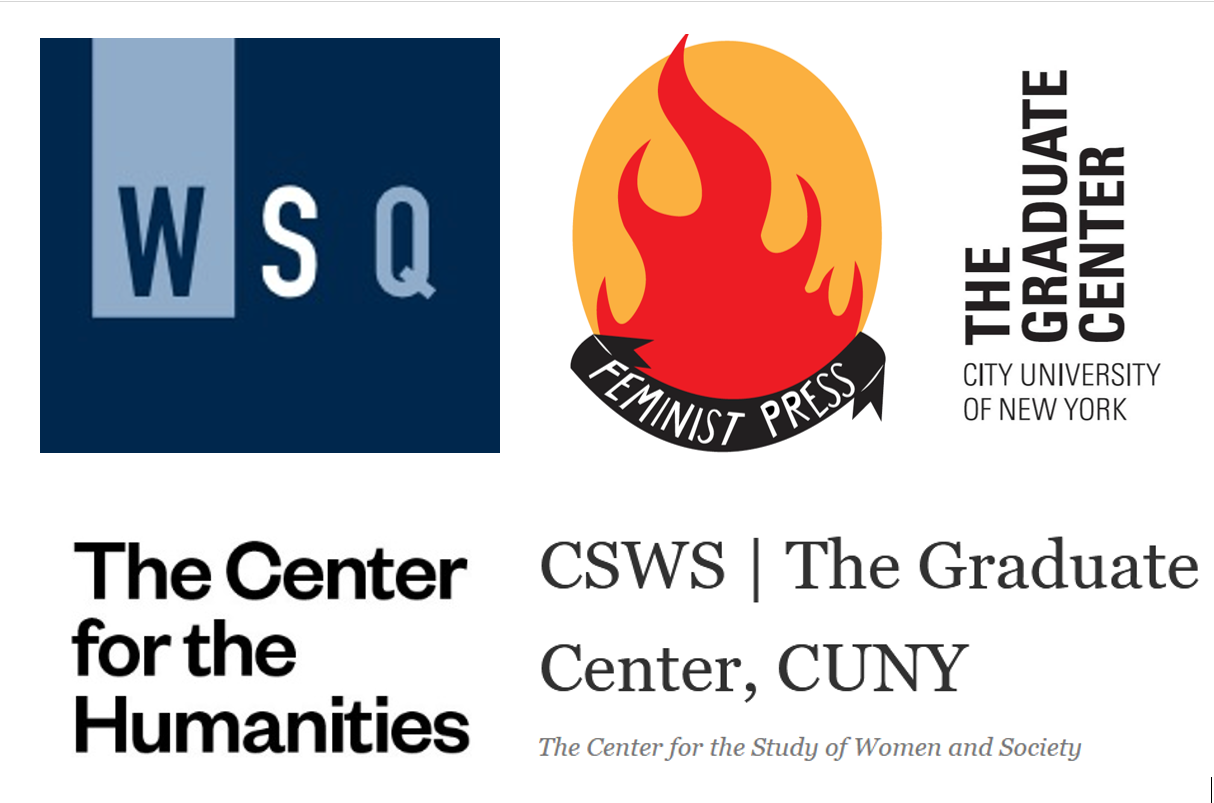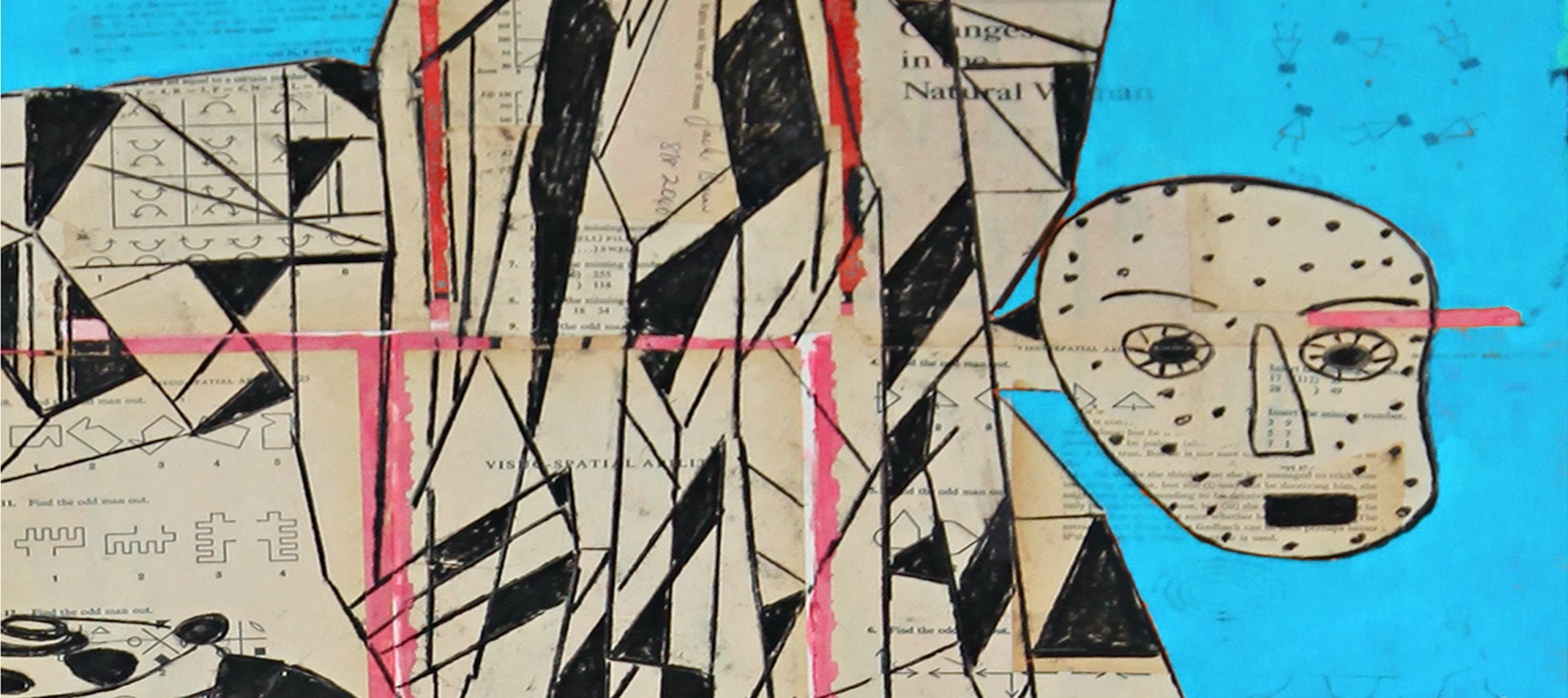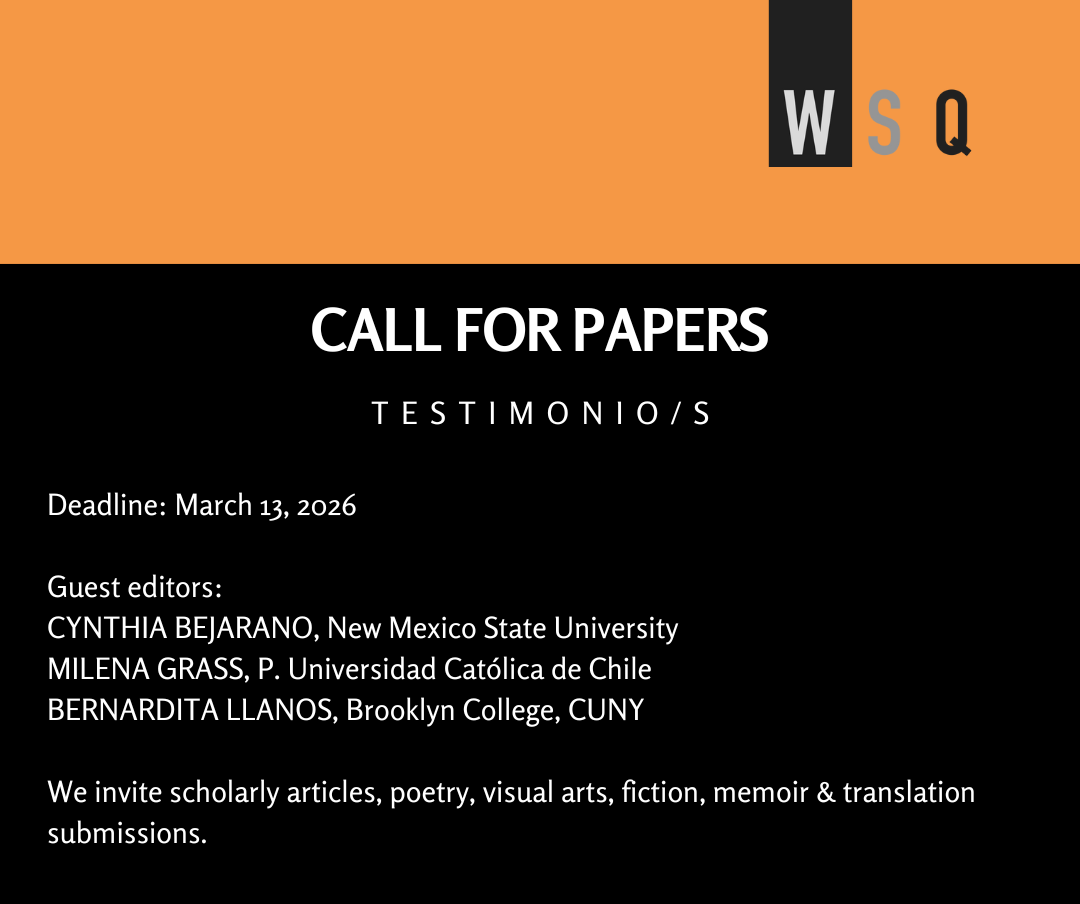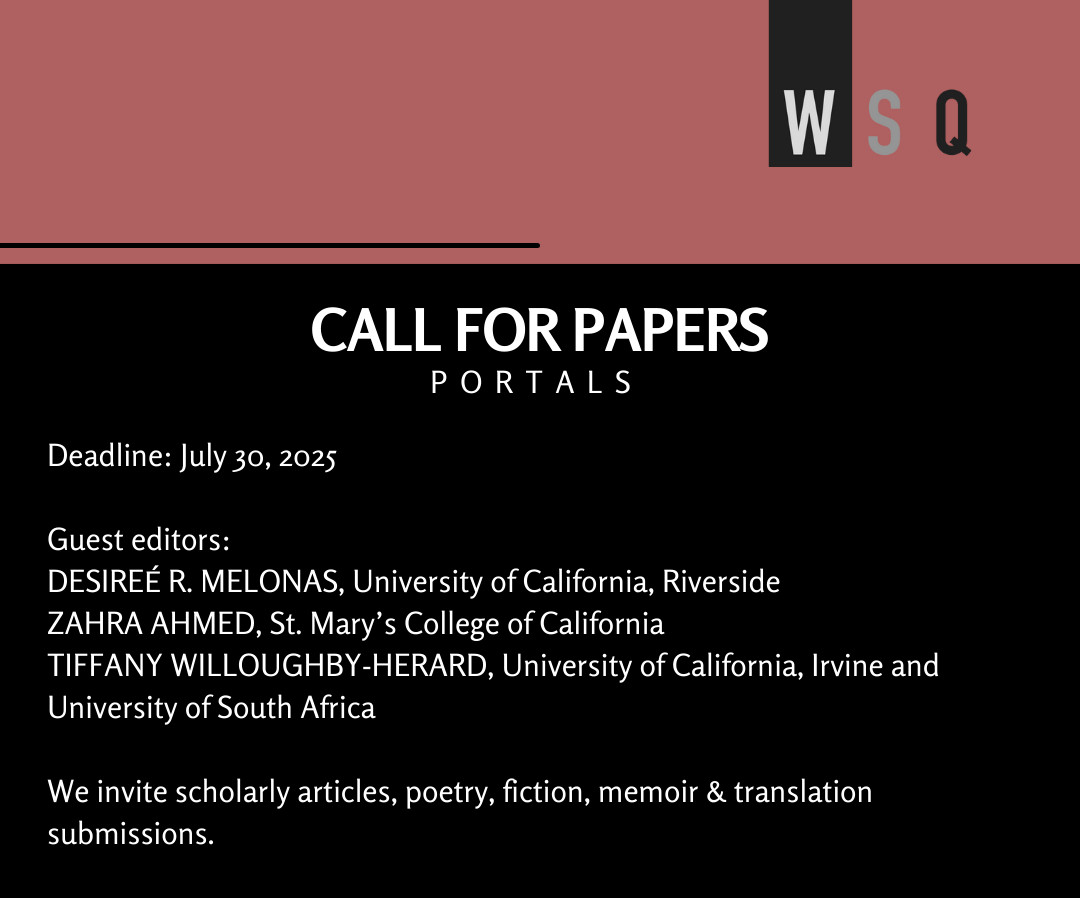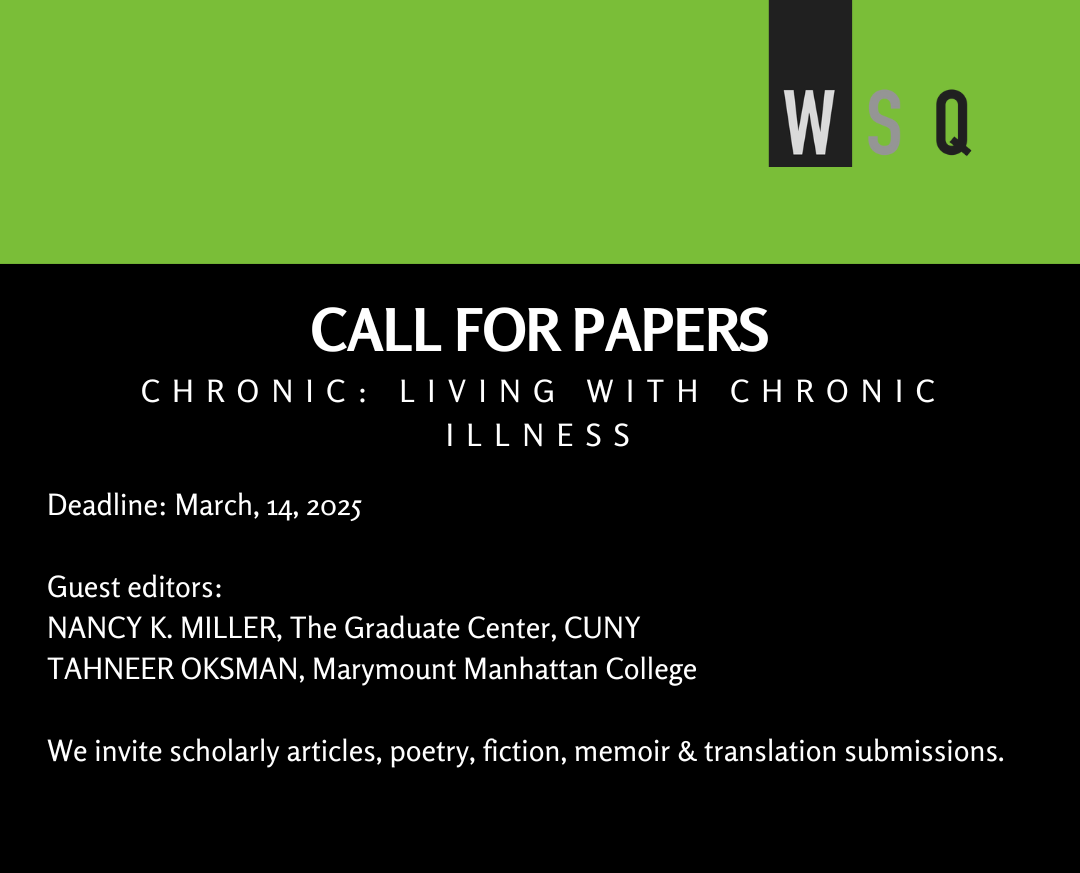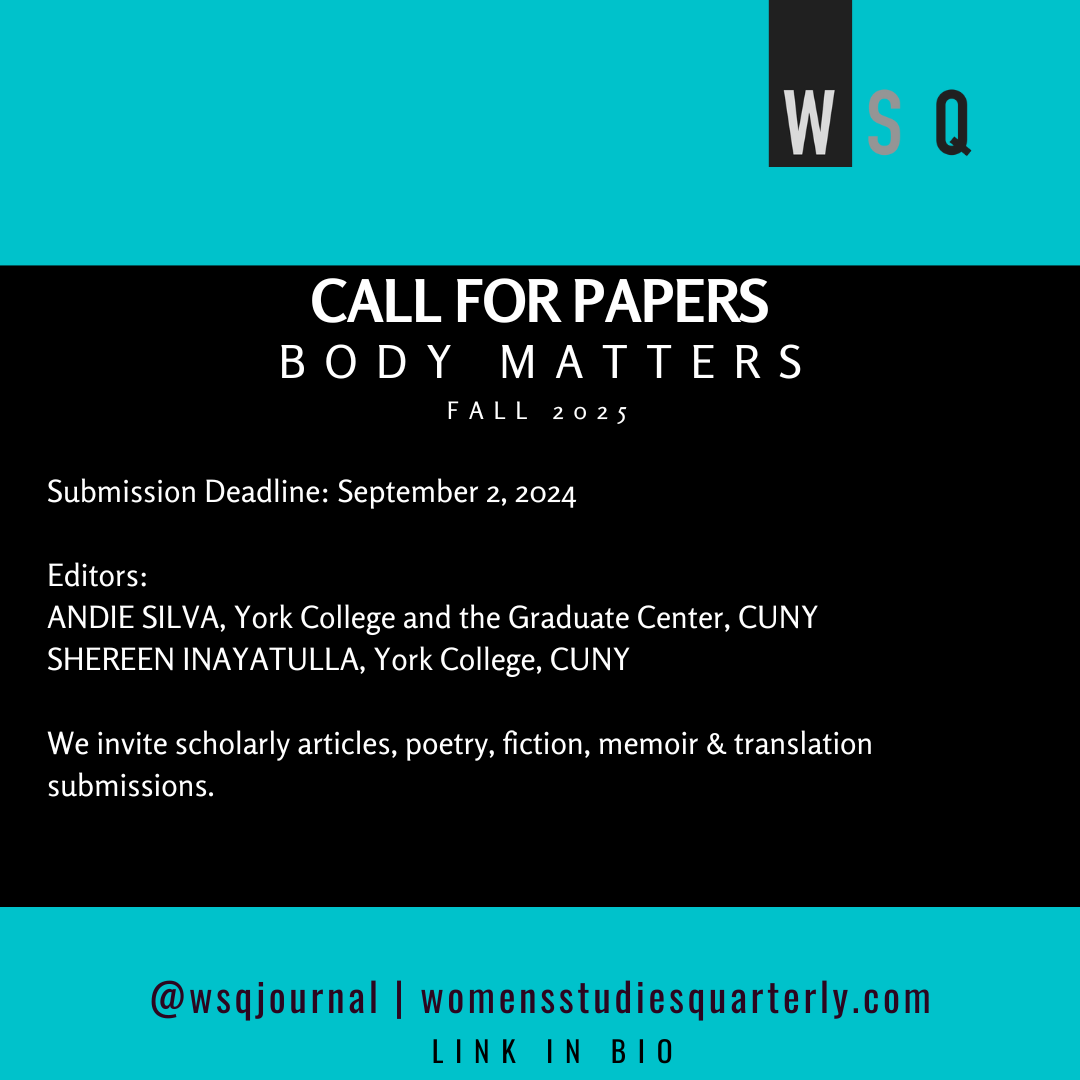
Continuing our partnership with Women Studies Quarterly (WSQ), The Center for the Humanities is excited to share this call for papers for a special Spring 2023 WSQ issue State/Power which will be guest edited by Christina B. Hanhardt, University of Marylandand Dayo F. Gore, Georgetown University, in collaboration with WSQ‘s publisher The Feminist Press and fellow partner The Center for the Study of Women and Society at The Graduate Center CUNY.
WSQ, Spring 2022 Special Issue: State/Power
Guest Editors:
- Christina B. Hanhardt (University of Maryland)
- Dayo F. Gore (Georgetown University)
Priority Deadline: March 15th, 2022
In 2020 the Movement for Black Lives, drawing on what they describe as an “ecosystem of over 170 organizations,” relaunched its 2016 Vision for Black Lives platform to build “political will and power.” Two features of the platform are particularly notable: first, that an intersectional analysis remains at the center of all of their demands; and second, that “the state” is theorized as a source of punishment that activists reject and as a set of resources that activists might make claims upon. The strategies they propose thus highlighted “the state” as a key site in the struggle for power as they also recognize it as not just one thing, but as a hybrid set of relations that might be responded to on local, national, transnational, and global scales. The question of how to define and engage the state and its various levers of power has long been an issue of debate among activists and scholars around the globe. This special issue welcomes discussion of how social movements have theorized, organized, and otherwise strategized around state formations, with a focus on the U.S. and an understanding that state power and strategies of resistance are not limited by national borders.
In the U.S., the vexed and interconnected systems of benefits, discipline, and violence at the heart of the welfare, warfare, bureaucratic, surveillance, and carceral state have posed particular challenges to those seeking to make visible uneven and exploitative structures of power. And contrary to the heralded death of the state in the face of the rising power of global institutions and multinational corporations, “the state” continues to be a significant site of theorizing and political struggle in many geographic contexts. Furthermore, as activists have shown, calls to dismantle or reimagine state structures are complicated by the exigencies of accountability and resource sharing and of reconceiving the relationship between nations, states, land, and territory.
The question of how to theorize power and the state is a central concern of the field of women’s, gender, and sexuality studies, and the long history of privatization woven into or authorized by state governance has been fundamental to shaping the form of social movements addressing work, sexuality, political power, kinship, care, and much more. These issues have become particularly salient in recent years as activists have adopted various strategies in response to ongoing racialized state violence and the uneven global effects of Covid-19, including abolition, mutual aid, or the fight to fund jobs, health and childcare, and infrastructure. This is all set to the backdrop of a sharp resurgence of explicit white nationalist, anti-feminist, ableist, and anti-trans public discourse as well as debates about engaging governmental leadership from across the political spectrum. Such countervailing forces highlight the current stakes of different interpretations of state power.
This special issue asks after the long history and diverse contemporary landscape of social change to analyze how different collective bodies have theorized power and engaged state formations. We are most interested in articles that focus on the theories and practices of social and political collectives, in the U.S. and transnationally, at different scales and historical moments.
Essays might engage the following questions (among others):
- How have social movements defined and theorized “state power” throughout the twentieth and twenty-first centuries and across local, national, transnational, and international/global scales?
- What organizing models and strategic interventions have been developed to make demands on the state or claim state resources, and what have been the benefits and limits of such efforts?
- How have activists and organizations drawn on definitions and theorizing of “the state” and power to create alternative frameworks of leadership, strategies for claiming power, and visions of change?
- Neoliberal state policies have dismantled some aspects of the welfare state while retooling others—how have these shifts altered the conception of what is a public versus private resource and, in turn, informed activist strategies?
- Are the frameworks of civil rights or human rights useful discourses for claiming state resources? What possibilities or limits might they pose?
- How have activists responded to state regulation and management of bodies, or of biopower more generally, including but not limited to issues of sexuality, reproductive justice, population growth, and movement? How might we understand the place of necropolitics in this context?
- How have the mandates of privatization shaped do-it-yourself and self-help strategies? What is their relationship to dual power, prefigurative, or other left movement strategies?
SUBMISSION GUIDELINES
Priority Deadline: March 15th, 2022
- Scholarly articles should be submitted to WSQ.submittable.com. Please send complete articles, not abstracts. Please remove all identifying information from the file uploaded to Submittable. We will give priority consideration to submissions received by March 15, 2022. LGBTQIA+, disabled, Black, Indigenous, and people of color are especially encouraged to submit.
- Submissions should not exceed 6,000 words (including un-embedded notes and works cited) and should comply with the formatting guidelines at https://www.feministpress.org/submission-guidelines. For questions, please email the guest issue editors at [email protected].
- Poetry submissions related to the issue theme should be submitted to WSQ.submittable.com. Please review previous issues of WSQ to see what type of submissions we prefer before submitting poems. Please note that poetry submissions may be held for six months or longer. Simultaneous submissions are acceptable if the poetry editor is notified immediately of acceptance elsewhere. We do not accept work that has been previously published. For questions related to poetry submissions, please email the WSQ’s poetry editor at[email protected].
- Fiction, essay, memoir, and translation submissions related to the issue theme between 2,000 and 2,500 words should be submitted to WSQ.submittable.com. Please review previous issues of WSQ to see what type of submissions we prefer before submitting prose. Please note that prose submissions may be held for six months or longer. Simultaneous submissions are acceptable if the prose editor is notified immediately of acceptance elsewhere. We do not accept work that has been previously published. For questions related to creative prose submissions, please email [email protected].
ABOUT WSQ: Since 1972, WSQ has been an interdisciplinary forum for the exchange of emerging perspectives on women, gender, and sexuality. Its peer-reviewed interdisciplinary thematic issues focus on such topics as Asian Diasporas, Protest, Beauty, Precarious Work, At Sea, Solidarity, Queer Methods, Activisms, The Global and the Intimate, Trans-, The Sexual Body, and Mother, combining legal, queer, cultural, technological, and historical work to present the most exciting new scholarship, fiction, creative nonfiction, poetry, book reviews, and visual arts on ideas that engage popular and academic readers alike. WSQ is edited by Brianne Waychoff (Borough of Manhattan Community College, CUNY) and Red Washburn (Kingsborough Community College, CUNY) and published by the Feminist Press at the City University of New York, and supported and co-sponsored by the Center for the Humanities and the the Center for the Study of Women and Society at The Graduate Center, CUNY. Visit http://www.feministpress.org/w…
